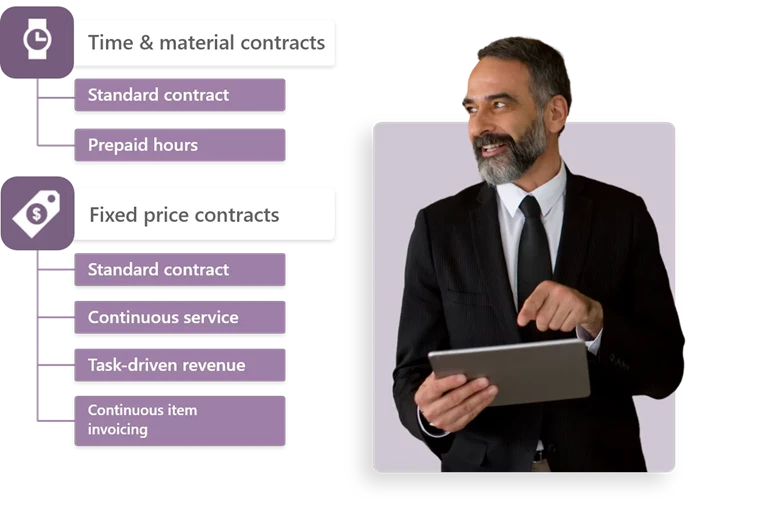How to nudge your employees to track time
12 min read
If your company has yet to start tracking time, here are nine essential tips for a successful implementation. (updated)
Time tracking
Build your perfect data foundation for spotless invoicing and deep business insights with easy time tracking.
Project management
Be a world champion project manager. Keep your projects on track - and profitable.
Resource management
Efficiently staff projects and run a predictable business with confidence.
Insights & Reporting
Get smarter - faster - to make clever decisions for long-term growth impact.
Project accounting & Invoicing
Invoice everything - fast and accurate - while staying on top of project finances.
Staff & Salary
Give accountants and HR an intelligent tool to eliminate draining administration.
Financial Systems
TimeLog offers standard integrations for all your favourite financial systems. Save time and reduce manual tasks.
Payroll Solutions
TimeLog offers standard integrations for multiple payroll solutions. Get easy salary administration and only enter payroll information once.
Add-ons
Track time automatically via Outlook, use gamification or find another add-on that can support your business.
Multiple Legal Entities
You can create synergy between your departments and across borders and offices with the Multiple Legal Entities module from TimeLog.
Business Intelligence
Utilise the insights you get from TimeLog to the fullest. Our system is ready to integrate with multiple BI solutions.
Partner Integrations
TimeLog PSA is part of a large ecosystem. Get an overview of all the partner integrations in the TimeLog family.
Economy department
Save 1-2 days a month on your invoicing process.
Project teams
From planning to execution and evaluation. Robust tools for every project manager.
Management teams
Create a performance-driven culture with solid reporting capabilities.
Large enterprises
Enhance operations and performance across entities, countries and departments.
NGOs and non-profit organisations
Simplify internal processes, spend less time on administration, and get documentation in place - at a discounted rate.
Blog
Get inspired to run an even better business with articles, guides and analyses.
Guides, podcasts and webinars
Get access to templates, guides and webinars that help and inspire you.
Help Center
Looking for help material and user guides to the TimeLog system? Look no further. Find all the help you need now.
Get a single source of truth
Discover how companies maintain a single source of truth across borders, departments, and currencies.
Get integrated
Discover the advantages customers gain from utilising our integrations and API.
Reporting in real-time
Explore how others leverage reporting to optimise their processes and make informed decisions.
Get started with resource planning
Discover how other companies thoroughly grasp their resources and enhance their ability to predict future trends.
Improved project financials
This is how the efficient financial toolbox from TimeLog helps project managers and CFOs improve their project financials.
Faster invoicing
Discover how other companies have slashed the time spent on invoicing by 75% - and uncover how you can achieve the same efficiency.
The Story of TimeLog
Get insights on TimeLog and how we can help you grow and evolve your business.
Employees
See who shows up every day to deliver the best PSA solution.
Career
What's life like at TimeLog? Are we hiring? Get the answer here.
Partner
Create even more value for your customers, as well as ours, as a TimeLog Partner.
Premium Service
Online Help Center, tailored onboarding and support from Day 1.
Corporate Social Responsibility
We work to ensure a positive impact on planet, people and businesses.
Security and GDPR
Learn more about how we work to keep your data safe and provide maximum security.
4 min read
At TimeLog, we have more than 18 years of experience implementing time tracking systems in companies of all sizes. So, if your company has yet to start tracking time, here are nine essential tips for a successful implementation. (updated)

You have finally invested in a digital time tracking system and you can't wait to be able to invoice more hours.
Or to gain insight into your company's performance.
BUT you won't enjoy the benefits if hours are being registered sporadically or if your employees fail to recognise the point in doing time tracking.
This is why it's essential that you and your employees get off to a good start implementing the new system to and ensure you receive the benefits of your investment.
The benefits only increase if your system for time tracking is properly integrated into your employees' everyday routines.
Here are nine actionable tips to help you implement a time tracking system.
If you track time internally as well as externally, you’ll gain invaluable insight into the distribution between internal and external tasks for your employees. You also gain insight into your employees' internal time spend.
If your employees only register external or billable time, it becomes difficult to determine if hours have been tracked correctly. And it also becomes harder for you to tell if everybody has done their time tracking.
We recommend that you always register all the time - regardless of the internal distribution.
For some employees, time tracking is a natural part of their work because they like knowing what their time is spent doing. Other employees loathe time tracking.
Everybody is different, as such, they’re motivated by different factors.
In our experience, it's best to be clear and open about what the purpose of tracking time is and how it will be used. And you need to communicate this more than once!
This need for communication requires you to be very aware of what your objective with time tracking is:
Whatever your objectives are, communicate them to your employees so everybody knows why they should track their time.
Once your time registration system is up and running, keep an eye out for employees that find it hard to remember to register time - and then try to motivate them directly in whatever way is best suited to help them.
Time registration is a process that must be introduced and monitored – just like every other business process - to work well.
That’s why it's a good idea to introduce fixed rules for time tracking.
It might be a good idea to say that all timesheets must be closed by Monday 11 a.m. Or that all hours must be registered before leaving the office.
You should be careful not to introduce a tyranny of rules. Establishing processes you consider manageable and realistic for your colleagues and yourself is better than sticking to them.
Introduce a process in which employees should add brief comments to their time registrations.
If you get into a disagreement with your customers in case the deadlines are being exceeded, comments to tasks could mean the difference whether you can invoice a project or have to cover work expenses.
Furthermore, comments offer invaluable insight into how project time is spent.
If you’re a project manager and track the time you spent working on projects and adding useful comments, but you don't have access to invoicing and report creation features - the benefits of time tracking are easy to miss.
That’s why it’s a good idea if management show the employees how time registration data is used.
You could show how invoices are being created, including line comments. Or how project managers are better equipped to do project reporting based on the time registered on projects.
Presenting these benefits at joint meetings is a great way to show the employees the benefits of time tracking.
Companies who have recently started tracking time usually experience an increase in invoicing percentages.
Similarly, revenue increases from the support feature are common. Or it becomes evident which customers make your company lose money.
Make sure that you communicate this kind of positive results. They provide motivation to track time and help increase the understanding of the project in general.
Make sure you place the responsibility for time registration in specific employees.
Who’s in charge of checking if weekly timesheets have been closed by Monday? Or whether project managers have all necessary time registration data for invoicing by the end of the month?
Designate a dedicated employee in charge of the time tracking, and make sure they’re motivated.
There’s no need to make time tracking more detailed and complicated than it needs to be.
Register only what you need for customer documentation or for generating reports on projects or your company's performance.
Some project managers believe that exact data gives better results. In many cases, this means creating several accounts or activities, employees are then expected to track their time on.
Whether your employees track time during the day or wait until just before closing time makes a massive difference.
On average, 45 minutes are lost daily if your employees wait until the end of the day to track time.
Try our simple calculator and see how many hours your company is potentially losing.
However, if employees have to track time on several accounts and on many different activities, you risk losing track of where and when a given period’s work has been accounted for. And it rarely improves project overview and employee usability.
Another typical scenario is if the project managers want to save time by creating a standard template they can apply to each customer or project containing a fixed series of tasks or phases for time registration.
This is handy for the project manager, as it’s a quick way to create a project. But it is bothersome for the employees, as they must spend extra time searching a huge number of tasks - a lot of which are irrelevant.
Carefully consider how you can make it as easy as possible for your employees to track time.
You should be extra careful to track time on support and adjustments following project sign-off.
Often, companies neglect to account for the time spent in this final phase and fail to invoice many billable hours.
Make sure your employees keep adding comments to each time registration for these final tasks. You might end up disagreeing with your customer whether or not this kind of work is included within the original contract you made with the customer or is an extra service for which you should be compensated.
You can do many things yourself to ensure your time tracking system gets off to a good start.
If you need a bit more help, our highly skilled implementation consultants are happy to help you implement TimeLog time tracking for your company.
Let's have an explorational dialogue and create an offer tailored to your needs. Contact us at +45 70 200 645 or send us an email at info@timelog.com.

12 min read
If your company has yet to start tracking time, here are nine essential tips for a successful implementation. (updated)

6 min read
If your company has yet to start tracking time, here are nine essential tips for a successful implementation. (updated)

5 min read
If your company has yet to start tracking time, here are nine essential tips for a successful implementation. (updated)

8 min read
If your company has yet to start tracking time, here are nine essential tips for a successful implementation. (updated)

2 min read
If your company has yet to start tracking time, here are nine essential tips for a successful implementation. (updated)

3 min read
If your company has yet to start tracking time, here are nine essential tips for a successful implementation. (updated)

8 min read
If your company has yet to start tracking time, here are nine essential tips for a successful implementation. (updated)

5 min read
If your company has yet to start tracking time, here are nine essential tips for a successful implementation. (updated)

5 min read
If your company has yet to start tracking time, here are nine essential tips for a successful implementation. (updated)